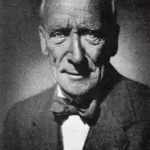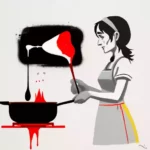 | |
Max Hensig | |
| Author | Algernon Blackwood |
|---|---|
| Published |
1905
|
| Language | English |
| Nationality | English |
| Genre | Horror, Supernatural Fiction |
1905 Short Story
Max Hensig
Max Hensig is an English Horror, Supernatural Fiction short story by English writer Algernon Blackwood. It was first published in 1905.
Max Hensig
by Algernon Blackwood
Besides the departmental men on the New York Vulture, there were about twenty reporters for general duty, and Williams had worked his way up till he stood easily among the first half-dozen; for, in addition to being accurate and painstaking, he was able to bring to his reports of common things that touch of imagination and humour which just lifted them out of the rut of mere faithful recording. Moreover, the city editor (anglice news editor) appreciated his powers, and always tried to give him assignments that did himself and the paper credit, and he was justified now in expecting to be relieved of the hack jobs that were usually allotted to new men.
He was therefore puzzled and a little disappointed one morning as he saw his inferiors summoned one after another to the news desk to receive the best assignments of the day, and when at length his turn came, and the city editor asked him to cover “the Hensig story”, he gave a little start of vexation that almost betrayed him into asking what the devil “the Hensig story” was. For it is the duty of every morning newspaper manin New York at leastto have made himself familiar with all the news of the day before he shows himself at the office, and though Williams had already done this, he could not recall either the name or the story.
“You can run to a hundred or a hundred and fifty, Mr. Williams. Cover the trial thoroughly, and get good interviews with Hensig and the lawyers. There’ll be no night assignment for you till the case is over.”
Williams was going to ask if there were any private “tips” from the District Attorney’s office, but the editor was already speaking with Weekes, who wrote the daily “weather story”, and he went back slowly to his desk, angry and disappointed, to read up the Hensig case and lay his plans for the day accordingly. At any rate, he reflected, it looked like “a soft job”, and as there was to be no second assignment for him that night, he would get off by eight o’clock, and be able to dine and sleep for once like a civilised man. And that was something.
It took him some time, however, to discover that the Hensig case was only a murder story.
And this increased his disgust. It was tucked away in the corners of most of the papers, and little importance was attached to it. A murder trial is not first-class news unless there are very special features connected with it, and Williams had already covered scores of them. There was a heavy sameness about them that made it difficult to report them interestingly, and as a rule they were left to the tender mercies of the ” flimsy” menthe Press Associationsand no paper sent a special man unless the case was distinctly out of the usual. Moreover, a hundred and fifty meant a column and a half, and Williams, not being a space man, earned the same money whether he wrote a stickful or a page; so that he felt doubly aggrieved, and walked out into the sunny open spaces opposite Newspaper Row heaving a deep sigh and cursing the boredom of his trade.
Max Hensig, he found, was a German doctor accused of murdering his second wife by injecting arsenic. The woman had been buried several weeks when the suspicious relatives got the body exhumed, and a quantity of the poison had been found in her. Williams recalled something about the arrest, now he came to think of it; but he felt no special interest in it, for ordinary murder trials were no longer his legitimate work, and he scorned them. At first, of course, they had thrilled him horribly, and some of his interviews with the prisoners, especially just before execution, had deeply impressed his imagination and kept him awake o’ nights. Even now he could not enter the gloomy Tombs Prison, or cross the Bridge of Sighs leading from it to.the courts, without experiencing a real sensation, for its huge Egyptian columns and massive walls closed round him like death; and the first time he walked down Murderers’ Row, and came in view of the cell doors, his throat was dry, and he had almost turned and run out of the building.
The first time, too, that he covered the trial of a Negro and listened to the man’s hysterical speech before sentence was pronounced, he was absorbed with interest, and his heart leaped. The wild appeals to the Deity, the long invented words, the ghastly pallor under the black skin, the rolling eyes, and the torrential sentences all seemed to him to be something tremendous to describe for his sensational sheet; and the stickfull that was eventually printedwritten by the flimsy man toohad given him quite a new standard of the relative value of news and of the quality of the satiated public palate. He had reported the trials of a Chinaman, stolid as wood; of an Italian who had been too quick with his knife; and of a farm girl who had done both her parents to death in their beds, entering their room stark naked, so that no stains should betray her; and at the beginning these things haunted him for days.
But that was all months ago, when he first came to New York. Since then his work had been steadily in the criminal courts, and he had grown a second skin. An execution in the electric chair at Sing Sing could still unnerve him somewhat, but mere murder no longer thrilled or excited him, and he could be thoroughly depended on to write a good “murder story”an account that his paper could print without blue pencil.
Accordingly he entered the Tombs Prison with nothing stronger than the feeling of vague oppression that gloomy structure always stirred in him, and certainly with no particular emotion connected with the prisoner he was about to interview; and when he reached the second iron door, where a warder peered at him through a small grating, he heard a voice behind him, and turned to find the Chronicle man at his heels.
“Hullo, Senator! What good trail are you following down here?” he cried, for the other got no small assignments, and never had less than a column on the Chronicle front page at space rates.
“Same as you, I guessHensig,” was the reply.
“But there’s no space in Hensig,” said Williams with surprise. “Are you back on salary again?”
“Not much,” laughed the Senatorno one knew his real name, but he was always called Senator. “But Hensig’s good for two hundred easy. There’s a whole list of murders behind him, we hear, and this is the first time he’s been caught.”
“Poison?”
The Senator nodded in reply, turning to ask the warder some question about another case, and Williams waited for him in the corridor, impatiently rather, for he loathed the musty prison odour. He watched the Senator as he talked, and was distinctly glad he had come. They were good friends: he had helped Williams when he first joined the small army of newspaper men and was not much welcomed, being an Englishman. Common origin and goodheartedness mixed themselves delightfully in his face, and he always made Williams think of a friendly, honest cart-horse stolid, strong, with big and simple emotions.
“Get a hustle on, Senator,” he said at length impatiently. The two reporters followed the warder down the flagged corridor, past a row of dark cells, each with its occupant, until the man, swinging his keys in the direction indicated, stopped and pointed:
“Here’s your gentleman,” he said, and then moved on down the corridor, leaving them staring through the bars at a tail, slim young man, pacing to and fro. He had flaxen hair and very bright blue eyes; his skin was white, and his face wore so open and innocent an expression that.one would have said he could not twist a kitten’s tail without wincing.
From the Chronicle and Vulture,” explained Williams, by way of introduction, and the talk at once began in the usual way.
The man in the cell ceased his restless pacing up and down, and stopped opposite the bars to examine them. He stared straight into Williams’s eyes for a moment, and the reporter noted a very different expression from the one he had first seen. It actually made him shift his position and stand a little to one side. But the movement was wholly instinctive. He could not have explained why he did it.
“Guess you vish me to say I did it, and then egsplain to you how I did it,” the young doctor said coolly, with a marked German accent. “But I haf no copy to gif you shust now. You see at the trial it is nothing but spiteand shealosy of another woman. I lofed my vife. I vould not haf gilled her for anything in the vorld”
“Oh, of course, of course, Dr. Hensig,” broke in the Senator, who was more experienced in the ways of difficult interviewing. ” We quite understand that. But, you know, in New York the newspapers try a man as much as the courts, and we thought you might like to make a statement to the public which we should be very glad to print for you. It may help your case”
“Nothing can help my case in this tamned country where shustice is to he pought mit tollars!”
cried the prisoner, with a sudden anger and an expression of face still further belying the first one; “nothing except a lot of money. But I tell you now two things you may write for your public: One is, no motive can be shown for the murder, because I lofed Zinka and vished her to live alvays. And the other is” He stopped a moment and stared steadily at Williams making shorthand notes”that with my knowledgemy egceptional knowledgeof poisons and pacteriology I could have done it in a dozen ways without pumping arsenic into her body. That is a fool’s way of killing. It is clumsy and childish and sure of discofery! See?”
He turned away, as though to signify that the interview was over, and sat down on his wooden bench.
“Seems to have taken a fancy to you,” laughed the Senator, as they went off to get further interviews with the lawyers. “He never looked at me once.”
“He’s got a bad facethe face of a devil. I don’t feel complimented,” said Williams shortly.
“I’d hate to be in his power.”
“Same here,” returned the other. “Let’s go into Silver Dollars and wash the dirty taste out.”
So, after the custom of reporters, they made their way up the Bowery and went into a saloon that had gained a certain degree of fame because the Tammany owner had let a silver dollar into each stone of the floor. Here they washed away most of the “dirty taste” left by the Tombs atmosphere and Hensig, and then went on to Steve Brodie’s, another saloon a little higher up the same street.
“There’ll be others there,” said the Senator, meaning drinks as well as reporters, and Williams, still thinking over their interview, silently agreed.
Brodie was a character; there was always something lively going on in his place. He had the reptmtation of having once jumped from the Brooklyn Bridge and reached the water alive. No one could actually deny it, and no one could p rove that it really happened: and anyhow, he had enough imagination and personality to make the myth live and to sell much bad liquor on the strength of it. The walls of his saloon were plastered with lurid oil-paintings of the bridge, the height enormously magnified, and Steve’s body in midair, an expression of a happy puppy on his face.
Here, as expected, they found “Whitey” Fife, of the Recorder, and Galusha Owen, of the.World. “Whitey”, as his nickname implied, was an albino, and clever. He wrote the daily “weather story” for his paper, and the way he spun a column out of rain, wind, and temperature was the envy of everyone except the Weather Clerk, who objected to being described as “Farmer Dunne, cleaning his rat-tail file”, and to having his dignified office referred to in the public press as “a down-country farm”. But the public liked it, and laughed, and “Whitey” was never really spiteful.
Owen, too, when sober, was a good man who had long passed the rubicon of hack assignments. Yet both these men were also on the Hensig story. And Williams, who had already taken an instinctive dislike to the case, was sorry to see this, for it meant frequent interviewing and the possession, more or less, of his mind and imagination. Clearly, he would have much to do with this German doctor. Already, even at this stage, he began to hate him.
The four reporters spent an hour drinking and talking. They fell at length to discussing the last time they had chanced to meet on the same assignmenta private lunatic asylum owned by an incompetent quack without a licence, and where most of the inmates, not mad in the first instance, and all heavily paid for by relatives who wished them out of the way, had gone mad from ill-treatment. The place had been surrounded before dawn by the Board of Health officers, and the quasi-doctor arrested as he opened his front door. It was a splendid newspaper “story”, of course.
“My space bill ran to sixty dollars a day for nearly a week,” said Whitey Fife thickly, and the others laughed, because Whitey wrote most of his stuff by cribbing it from the evening papers.
“A dead cinch,” said Galusha Owen, his dirty flannel collar poking up through his long hair almost to his ears. “I ‘faked’ the whole of the second day without going down there at all.”
He pledged Whitey for the tenth time that morning, and the albino leered happily across the table at him, and passed him a thick compliment before emptying his glass.
“Hensig’s going to be good, too,” broke in the Senator, ordering a round of gin-fizzes, and Williams gave a little start of annoyance to hear the name brought up again. “He’ll make good stuff at the trial. I never saw a cooler hand. You should’ve heard him talk about poisons and bacteriology, and boasting he could kill in a dozen ways without fear of being caught. I guess he was telling the truth right enough!”
“That so?” cried Galusha and Whitey in the same breath, not having done a stroke of work so far on the case.
“Run down to the Tombsh angetaninerview,” added Whitey, turning with a sudden burst of enthusiasm to his companion. His white eyebrows and pink eyes fairly shone against the purple of his tipsy face.
“No, no,” cried the Senator; “don’t spoil a good story. You’re both as full as ticks. I’ll match with Williams which of us goes. Hensig knows us already, and we’ll all ‘give up’ in this story right along. No ‘beats’.”
So they decided to divide news till the case was finished, and to keep no exclusive items to themselves; and Williams, having lost the toss, swallowed his gin-fizz and went back to the Tombs to get a further talk with the prisoner on his knowledge of expert poisoning and bacteriology.
Meanwhile his thoughts were very busy elsewhere. He had taken no part in the noisy conversation in the barroom, because something lay at the back of his mind, bothering him, and claiming attention with great persistence. Something was at work in his deeper consciousness, something that had impressed him with a vague sense of unpleasantness and nascent fear, reaching below that second skin he had grown..And, as he walked slowly through the malodorous slum streets that lay between the Bowery and the Tombs, dodging the pullers-in outside the Jew clothing stores, and nibbling at a bag of pea-nuts be caught up off an Italian push-cart en route, this “something” rose a little higher out of its obscurity, and began to play with the roots of the ideas floating higgledy-piggledy on the surface of his mind. He thought he knew what it was, but could not make quite sure. From the roots of his thoughts it rose a little higher, so that he clearly felt it as something disagreeable.
Then, with a sudden rush, it came to the surface, and poked its face before him so that he fully recognised it.
The blond visage of Dr. Max Hensig rose before him, cool, smiling, and implacable.
Somehow, he had expected it would prove to be Hensig this unpleasant thought that was troubling him. He was not really surprised to have labelled it, because the man’s personality had made an unwelcome impression upon him at the very start. He stopped nervously in the Street, and looked round. He did not expect to see anything out of the way, or to find that he was being followed. It was not that exactly. The act of turning was merely the outward expression of a sudden inner discomfort, and a man with better nerves, or nerves more under control, would not have turned at all.
But what caused this tremor of the nerves? Williams probed and searched within himself. It came, he felt, from some part of his inner being he did not understand; there had been an intrusion, an incongruous intrusion, into the stream of his normal consciousness. Messages from this region always gave him pause; and in this particular case he saw no reason why he should think specially of Dr. Hensig with alarmthis light-haired stripling with blue eyes and drooping moustache. The faces of other murderers had haunted him once or twice because they were more than ordinarily bad, or because their case possessed unusual features of horror. But there was nothing so very much out of the way about Hensigat least, if there was, the reporter could not seize and analyse it. There seemed no adequate reason to explain his emotion. Certainly, it had nothing to do with the fact that he was merely a murderer, for that stirred no thrill in him at all, except a kind of pity, and a wonder how the man would meet his execution. It must, he argued, be something to do with the personality of the man, apart from any particular deed or characteristic.
Puzzled, and still a little nervous, he stood in the road, hesitating. In front of him the dark walls of the Tombs rose in massive steps of granite. Overhead white summer clouds sailed across a deep blue sky; the wind sang cheerfully among the wires and chimney-pots, making him think of fields and trees; and down the Street surged the usual cosmopolitan New York crowd of laughing Italians, surly Negroes, hebrews chattering Yiddish, tough-looking hooligans with that fighting lurch of the shoulders peculiar to New York roughs, Chinamen, taking little steps like boys and every other sort of nondescript imaginable. It was early June, and there were faint odours of the sea and of sea-beaches in the air. Williams caught himself shivering a little with delight at the sight of the sky and scent of the wind.
Then he looked back at the great prison, rightly named the Tombs, and the sudden change of thought from the fields to the cells, from life to death, somehow landed him straight into the discovery of what caused this attack of nervousness:
Hensig was no ordinary murderer! That was it. There was something quite out of the ordinary about him. The man was a horror, pure and simple, standing apart from normal humanity. The knowledge of this rushed over him like a revelation, bringing unalterable conviction in its train.
Something of it had reached him in that first brief interview, but without explaining itself sufficiently to be recognised, and since then it had been working in his system, like a poison, and.was now causing a disturbance, not having been assimilated. A quicker temperament would have labelled it long before.
Now, Williams knew well that he drank too much, and had more than a passing acquaintance with drugs; his nerves were shaky at the best of times. His life on the newspapers afforded no opportunity of cultivating pleasant social relations, but brought him all the time into contact with the seamy side of lifethe criminal, the abnormal, the unwholesome in human nature. He knew, too, that strange thoughts, idées fixes and what not, grew readily in such a soil as this, and, not wanting these, he had formed a habitpeculiar to himselfof deliberately sweeping his mind clean once a week of all that had haunted, obsessed, or teased him, of the horrible or unclean, during his work; and his eighth day, his holiday, he invariably spent in the woods, walking, building fires, cooking a meal in the open, and getting all the country air and the exercise he possibly could. He had in this way kept his mind free from many unpleasant pictures that might otherwise have lodged there abidingly, and the habit of thus cleansing his imagination had proved more than once of real value to him.
So now he laughed to himself, and turned on those whizzing brooms of his, trying to forget these first impressions of Hensig, and simply going in, as he did a hundred other times, to get an ordinary interview with an ordinary prisoner. This habit, being nothing more nor less than the practice of suggestion, was more successful sometimes than others. This timesince fear is less susceptible to suggestion than other emotionsit was less so.
Williams got his interview, and came away fairly creeping with horror. Hensig was all that he had felt, and more besides. He belonged, the reporter felt convinced, to that rare type of deliberate murderer, cold-blooded and calculating, who kills for a song, delights in killing, and gives its whole intellect to the consideration of each detail, glorying in evading detection and revelling in the notoriety of the trial, if caught. At first he had answered reluctantly, but as Williams plied his questions intelligently, the young doctor warmed up and became enthusiastic with a sort of cold intellectual enthusiasm, till at last he held forth like a lecturer, pacing his cell, gesticulating, explaining with admirable exposition how easy murder could be to a man who knew his business.
And he did know his business! No man, in these days of inquests and post-mortem examination, would inject poisons that might be found weeks afterwards in the viscera of the victim. No man who knew his business!
“What is more easy,” he said, holding the bars with his long white fingers and gazing into the reporter’s eyes, “than to take a disease germ [‘cherm’ he pronounced it] of typhus, plague, or any cherm you blease, and make so virulent a culture that no medicine in the vorld could counteract it; a really powerful microbeand then scratch the skin of your victim with a pin? And who could drace it to you, or acctise you of murder?”
Williams, as he watched and heard, was glad the bars were between them; but, even so, something invisible seemed to pass from the prisoner’s atmosphere and lay an icy finger on his heart. He had come into contact with every possible kind of crime and criminal, and had interviewed scores of men who, for jealousy, greed, passion or other comprehensible emotion, had killed and paid the penalty of killing. He understood that. Any man with strong passions was a potential killer. But never before bad he met a man who in cold blood, deliberately, under no emotion greater than boredom, would destroy a human life and then boast of his ability to do it.
Yet this, he felt sure, was what Hensig had done, and what his vile words shadowed forth and betrayed. Here was something outside humanity, something terrible, monstrous; and it made him shudder. This young doctor, he felt, was a fiend incarnate, a man who thought less of human life.than the lives of flies in summer, and who would kill with as steady a hand and cool a brain as though he were performing a common operation in the hospital.
Thus the reporter left the prison gates with a vivid impression in his mind, though exactly how his conclusion was reached was more than he could tell. This time the mental brooms failed to act. The horror of it remained.
On the way out into the street he ran against Policeman Dowling of the ninth precinct, with whom he had been fast friends since the day he wrote a glowing account of Dowling’s capture of a “greengoods-man”, when Dowling had been so drunk that he nearly lost his prisoner altogether. The policeman had never forgotten the good turn; it had promoted him to plain clothes; and he was always ready to give the reporter any news he had.
“Know of anything good to-day?” he asked by way of habit.
“Bet your bottom dollar I do,” replied the coarse-faced Irish policeman; “one of the best, too.
I’ve got Hensig!”
Dowling spoke with pride and affection. He was mighty pleased, too, because his name would be in the paper every day for a week or more, and a big case helped the chances of promotion.
Williams cursed inwardly. Apparently there was no escape from this man Hensig.
“Not much of a case, is it?” he asked.
“It’s a jim dandy, that’s what it is,” replied the other, a little offended. “Hensig may miss the Chair because the evidence is weak, but he’s the worst I’ve ever met. Why, he’d poison you as soon as spit in your eye, and if he’s got a heart at all he keeps it on ice.”
“What makes you think that?”
“Oh, they talk pretty freely to us sometimes,” the policeman said, with a significant wink.
“Can’t be used against them at the trial, and it kind o’ relieves their mind, I guess. But I’d just as soon not have heard most of what that guy told mesee? Come in,” he added, looking round cautiously; “I’ll set ’em up and tell you a bit.”
Williams entered the side-door of a saloon with him, but not too willingly.
“A glarss of Scotch for the Englishman,” ordered the officer facetiously, “and I’ll take a horse’s collar with a dash of peach bitters in itjust what you’d notice, no more.” He flung down a half-dollar, and the bar-tender winked and pushed it back to him across the counter.
“What’s yours, Mike?” he asked him.
“I’ll take a cigar,” said the bar-tender, pocketing the proffered dime and putting a cheap cigar in his waistcoat pocket, and then moving off to allow the two men elbowroom to talk in.
They talked in low voices with heads close together for fifteen minutes, and then the reporter set up another round of drinks. The bar-tender took his money. Then they talked a bit longer, Williams rather white about the gills and the policeman very much in earnest.
“The boys are waiting for me up at Brodie’s,” said Williams at length. “I must be off.”
“That’s so,” said Dowling, straightening up. “We’ll just liquor up again to show there’s no ill-feeling. And mind you see mc every morning before the case is called. Trial begins to-morrow.”
They swallowed their drinks, and again the bar-tender took a ten-cent piece and pocketed a cheap cigar.
“Don’t print what I’ve told you, and don’t give it up to the other reporters,” said Dowling as they separated. “And if you want confirmation jest take the cars and run down to Amityville, Long Island, and you’ll find what I’ve said is O.K. every time.”
Williams went back to Steve Brodie’s, his thoughts whizzing about him like bees in a swarm..What he had heard increased tenfold his horror of the man. Of course, Dowling may have lied or exaggerated, but he thought not. It was probably all true, and the newspaper offices knew something about it when they sent good men to cover the case. Williams wished to Heaven he had nothing to do with the thing; but meanwhile he could not write what he had heard, and all the other reporters wanted was the result of his interview. That was good for half a column, even expurgated.
He found the Senator in the middle of a story to Galusha, while Whitey Fife was knocking cocktail glasses off the edge of the table and catching them just before they reached the floor, pretending they were Steve Brodie jumping from the Brooklyn Bridge. He had promised to set up the drinks for the whole bar if he missed, and just as Williams entered a glass smashed to atoms on the stones, and a roar of laughter went up from the room. Five or six men moved up to the bar and took their liquor, Williams included, and soon after Whitey and Galusha went off to get some lunch and sober up, having first arranged to meet Williams later in the evening and get the “story” from him.
“Get much?” asked the Senator.
“More than I care about,” replied the other, and then told his friend the story.
The Senator listened with intense interest, making occasional notes from time to time, and asking a few questions. Then, when Williams had finished, he said quietly:
“I guess Dowling’s right. Let’s jump on a car and go down to Amityville, and see what they think about him down there.”
Amityville was a scattered village some twenty miles away on Long Island, where Dr.
Hensig had lived and practised for the last year or two, and where Mrs. Hensig No. 2 had come to her suspicious death. The neighbours would be sure to have plenty to say, and though it might not prove of great value, it would be certainly interesting. So the two reporters went down there, and interviewed anyone and everyone they could find, from the man in the drug-store to the parson and the undertaker, and the stories they heard would fill a book.
“Good stuff,” said the Senator, as they journeyed back to New York on the steamer, “but nothing we can use, I guess.” His face was very grave, and he seemed troubled in his mind.
“Nothing the District Attorney can use either at the trial,” observed Williams.
“It’s simply a devilnot a man at all,” the other continued, as if talking to himself. “Utterly unmoral! I swear I’ll make MacSweater put me to another job.”
For the stories they had heard showed Dr. Hensig as a man who openly boasted that he could kill without detection; that no enemy of his lived long; that, as a doctor, he had, or ought to have, the right over life and death; and that if a person was a nuisance, or a trouble to him, there was no reason he should not put them away, provided he did it without rousing suspicion. Of course he had not shouted these views aloud in the market-place, but he had let people know that he held them, and held them seriously. They had fallen from him in conversation, in unguarded moments, and were clearly the natural expression of his mind and views. And many people in the village evidently had no doubt that he had put them into practice more than once.
“There’s nothing to give up to Whitey or Galusha, though,” said the Senator decisively, “and there’s hardly anything we can use in our story.”
“I don’t think I should care to use it anyhow,” Williams said, with rather a forced laugh.
The Senator looked round sharply by way of question.
“Hensig may be acquitted and get out,” added Williams. “Same here. I guess you’re dead right,” he said slowly, and then added more cheerfully, “Let’s go and have dinner in Chinatown, and write our copy together.”.So they went down Pell Street, and turned up some dark wooden stairs into a Chinese restaurant, smelling strongly of opium and of cooking not Western. Here at a little table on the sanded floor they ordered chou chop suey and chou om dong in brown bowls, and washed it down with frequent doses of the fiery white whisky, and then moved into a corner and began to cover their paper with pencil writing for the consumption of the great American public in the morning.
“There’s not much to choose between Hensig and that,” said the Senator, as one of the degraded white women who frequent Chinatown entered the room and sat down at an empty table to order whisky. For, with four thousand Chinamen in the quarter, there is not a single Chinese woman.
“All the difference in the world,” replied Williams, following his glance across the smoky room. “She’s been decent once, and may be again some day, but that damned doctor has never been anything but what he isa soulless, intellectual devil. He doesn’t belong to humanity at all.
I’ve got a horrid idea that”
“How do you spell ‘bacteriology’, two r’s or one?” asked the Senator, going on with his scrawly writing of a story that would be read with interest by thousands next day.
“Two r’s and one k,” laughed the other. And they wrote on for another hour, and then went to turn it into their respective offices in Park Row.
The trial of Max Hensig lasted two weeks, for his relations supplied money, and he got good lawyers and all manner of delays. From a newspaper point of view it fell utterly flat, and before the end of the fourth day most of the papers had shunted their big men on to other jobs more worthy of their powers.
From Williams’s point of view, however, it did not fall flat, and he was kept on it till the end.
A reporter, of course, has no right to indulge in editorial remarks, especially when a case is still sub judice, but in New Yor







